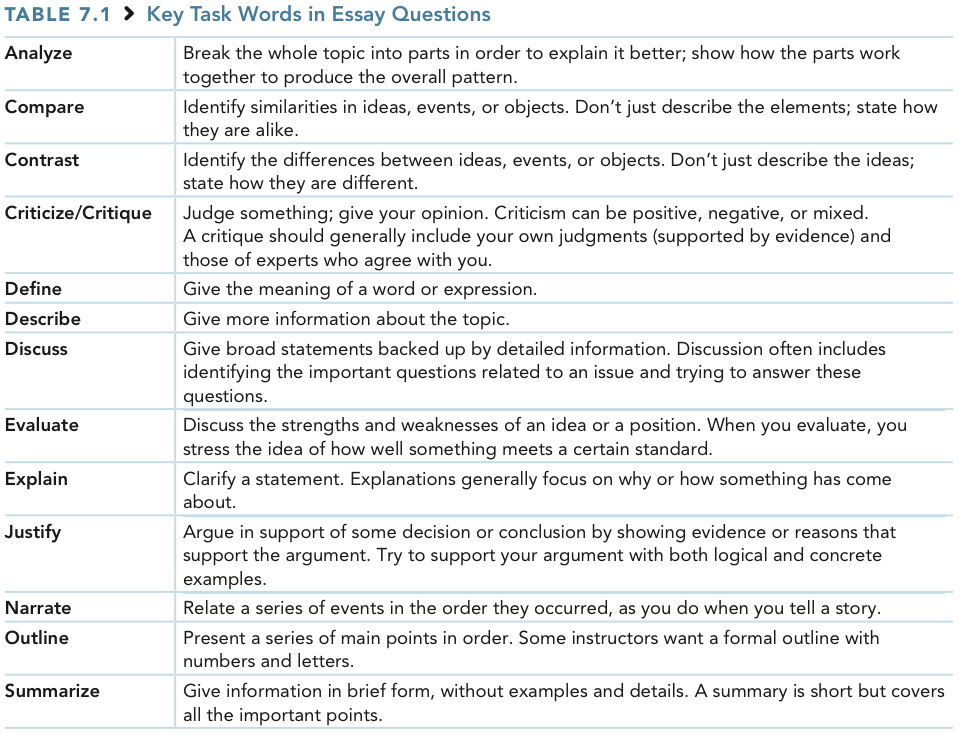Essay Questions
Essay exams include questions that require students to write a few paragraphs in response to each question. Many college instructors have a strong preference for essay questions for a simple reason: They require deeper thinking than other types of questions. Generally, advanced courses are more likely to include essay exams. To be successful on essay exam questions, follow these guidelines:
- Budget your exam time. Quickly go over the entire exam, and note the questions that are the easiest for you to answer. Estimate the approximate amount of time you should spend on each essay question based on its point value. Remember, writing long answers to questions that have low point values can be a mistake because it takes up precious time you might need for answering questions that count more toward the total grade. Be sure you know whether you must answer all the questions or choose among questions. Wear a watch to monitor your time, and don’t forget to leave a few minutes for a quick review.
- Actively read the whole question. Many well-prepared students write good answers to questions that were not asked—when that happens, they may lose points or even fail the exam. Many other students write good answers to only part of the question—they also may lose points or even fail the exam.
- Develop a brief outline of your answer before you begin to write. Make sure that your outline responds to all parts of the question. Use your first paragraph to introduce the main points; use the other paragraphs to describe each point in more depth. If you begin to lose your concentration, you will be glad to have the outline to help you regain your focus. If you find that you are running out of time and cannot complete an essay question, provide an outline of key ideas at the very least. Instructors usually assign points on the basis of your coverage of the main topics from the material. That means you will usually earn more points by responding briefly to all parts of the question than by addressing just one part of the question in detail. You might receive some credit for your outline even if you cannot finish the essay.
- Write concise, organized answers. Some students answer essay questions by quickly writing down everything they know on the topic. Long answers are not necessarily good answers. Answers that are too general, unfocused, or disorganized may not earn high scores.
- Know the key task words in essay questions. Being familiar with key task words that may appear in an essay question will help you frame your answer more specifically. Table 7.1 lists common key task words. If your instructor allows you to do so, consider circling or underlining key words in the question to make sure you know how to organize your answer.
